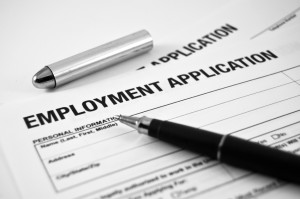Employment Law Help in California

Employment Law
One of the things few people think about when they look for a job is how employment law might affect them. One of the first things people think about when they have been fired is if employment law might help them get their job back or get paid for wrongful termination, but they rarely know what to do. There are all kinds of laws, both federal and state, that are intended to protect employees from discriminatory treatment, unfair labor practices, and working in unsafe conditions.
Applications and Interviews
There may be questions during the job search, perhaps on an application but more probably during the interview that do not sound right, and in fact may not be right. There are questions and subjects that are strictly not to be broached during an interview process. These include questions about the applicant’s race, religious beliefs, marital standing, and age. There are many more illegal questions, but ultimately it is up to the interviewee to stand up for their own rights if they believe they are being violated.
Benefits

Employment Law benefits
Some laws that are commonly broken include benefits given to employees. Sometimes employers try to get away without paying the correct minimum wage which can vary depending on where the employee lives. Another issue is paying a lower wage for a misclassified employee, such as paying someone as a seasonal employee when they are a full-time employee. Sometimes employees might be asked to work off the clock, and even if the employee agrees, it is illegal. Another common error is to make an employee “classified” and therefore exempt even though others with their same job title or duties are hourly.
Time off Protections
Most states allow employees to take time off from work to vote. In those states it is illegal to discipline or fire an employee who leaves work to vote. There may be specific steps the employee has to take before they can leave work to vote, things such as proving they don’t other time to vote, or giving the employer adequate notice, but the worker is protected if they meet these qualifications.
Most states also prohibit employers from disciplining or firing an employee who takes time off to serve on a jury. Once again, some states require an employee take certain steps, such as furnishing the jury notice to the employer, but generally the employee can miss work if called to jury duty.
Medical Leave

Employment Medical
Nearly every business in the United States is covered by the Family Medical Leave Act. The FMLA allow eligible employees to miss time for the birth or adoption of a child, care for a spouse or minor child, or parent with a serious medical condition, take care of the own health conditions including pregnancy. Under FMLA, the employer must provide a maximum of 12 weeks leave for these health and medical issues. The leave may be unpaid, but it can be combined with vacation or sick leave so the employee may get paid during the time they miss. Employers may also offer some pay or full pay while the employee is away from work.
Summary
Although many employment laws vary from state to state, more are guided by federal laws and statutes. The important thing for both employees and employers to remember is that if in doubt, see professional help and guidance.

